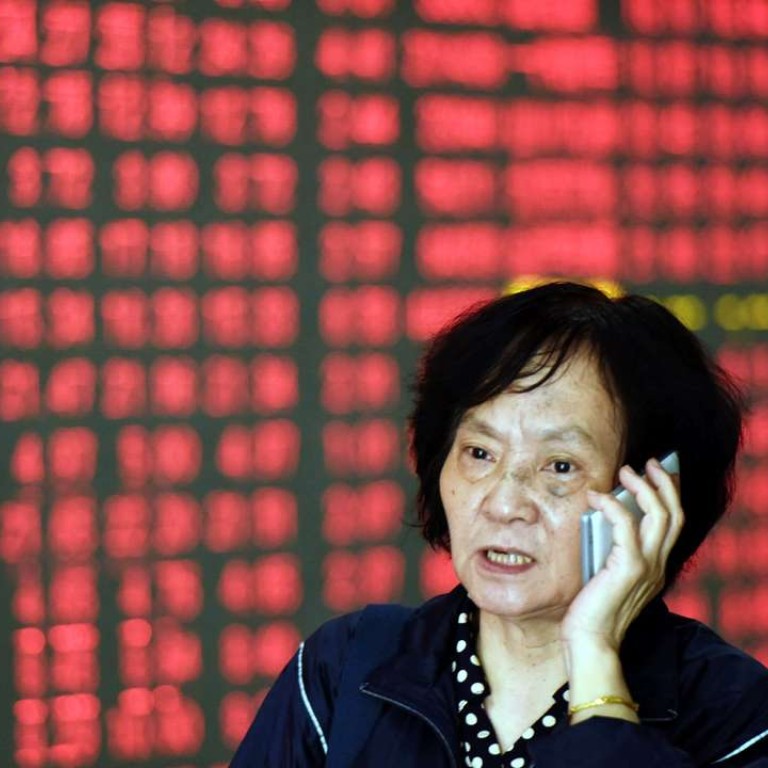
China’s ‘third board’ emerges as threat to Hong Kong’s IPO market
Lack of red tape a key advantage for over-the-counter NEEQ market, which has just been split into two levels to attract higher quality companies to list
More start-ups are cancelling plans to go public in Hong Kong and choosing instead to join the mainland’s National Equities Exchange and Quotations (NEEQ) – known as the “new third board” – especially now that the securities regulator has split the market to emulate the US Nasdaq system.
China’s securities authority last Friday officially divided the over-the-counter NEEQ into two levels. Companies with a robust financial performance, or bigger market capitalisation, will be listed on the higher “innovation level” to set them apart from other companies at the “basic level”.
Analysts said that since the “innovation level” will attract a bigger flow of capital and push up turnover, it could prove a magnet for quality companies to list, particularly at a time when the mainland regulator is putting the brakes on approvals for initial public offerings (IPOs) on the established Shanghai and Shenzhen bourses.
Philip Hao, chief executive of Learning without Borders, a London and Shenzhen based international education service platform, said he restructured his company to fit mainland market listing requirements, after dumping an original plan to go public in Hong Kong, where turnover has been tepid in recent weeks.
When Hao expanded the business from London to China in early 2015, he had planned to list the company in Hong Kong and registered a parent company in the city. But he changed his mind late last year and merged the Hong Kong based parent into the company’s mainland assets.

Official data shows companies listed on the NEEQ were trading at around 26 times their 2015 earnings last week, compared around a 10 times price-to-earnings ratio for those on Hong Kong’s main board in the past few months.
“Even though the NEEQ market is only open to institutional investors, not retail investors, and trading is less active, the initial fundraising would be enough for a company like us which relies heavily on our own cash flow,” Hao added.
Compared with a Hong Kong market IPO, which requires a company to be in business for two years and have a cash flow of at least HK$20 million and a minimum market cap of HK$100 million, the mainland NEEQ market requires only a two-year track record in business.
Moreover, securities regulators have reiterated that they will study ways to allow NEEQ-listed companies to transfer to the ChiNext board in Shenzhen, a step that would increase the new board’s appeal to entities that would like to eventually be traded on the public markets.
“The biggest problem with the NEEQ board is turnover, which on average is less then 1 per cent of the turnover on the Shanghai or Shenzhen bourse recently,” said a Shanghai based investment banker, who requested anonymity.
At the end of the day, it is the quality of the listed companies that talks, otherwise it will remain a new fashion
“However, the new innovative layer, which is expected to select fewer than 1,000 good quality companies, is likely to concentrate the capital and draw fresh liquidity,” he added.
More importantly, the lack of red tape is another major advantage, with a listing usually taking less than 6 months from the filing of the application. Candidate companies also need not worry about long queues as seen in the A-share market, where more than 700 companies are waiting for listings, or worry that other, better-connected companies may jump ahead of them in the queue.
The NEEQ exchange provides up to three rounds of feedback, which applicant companiesare required to respond to. There is no top-down valuation cap guiding new share offerings, while companies trading on the new board are also not subject to the 10 per cent daily movement cap as with A shares.
“In general, it is a more market-driven board,” the investment banker said.
Louis Tse Ming-kwong, a director of VC Brokerage in Hong Kong, said NEEQ looks like the Growth Enterprise Market (GEM) in Hong Kong in some ways.
“But at the end of the day, it is the quality of the listed companies that talks, otherwise it will remain a new fashion and people would flock to it but leave the market once they find the fundamentals are not attractive, just like what happened to the GEM board,” Tse said.
The GEM, set up in 1999, was supposed to be a Hong Kong version of Nasdaq that would attract listings by tech firms. It did not require profit history as a precondition, but required that companies be in business for at least two years and have a cash flow of HK$20 million.

Retail investors, who make up 90 per cent of the turnover on China’s A-share market, are barred from the NEEQ market for now. Only institutional investors or retail investors with net assets above 5 million yuan (HK$5.9 million) in their trading accounts are eligible to trade. In addition, trading takes place on an “over the counter” basis, meaning transactions occur directly between participants rather than via an exchange.
The NEEQ board, created in 2006 for the transfer of stakes of small and mid-sized companies unqualified for Shanghai and Shenzhen bourse listings, has remained a little-known market for most of its existence.
However, it has grabbed the spotlight since last year as more companies applied for listings. The number of firms listed on NEEQ had soared to 7,423 by Tuesday, almost a five-fold increase from the end of 2014, compared to 2,800 listings on the Shanghai and Shenzhen bourses.
Financing through new share offerings reached 121.62 billion yuan on NEEQ in 2015, surging almost 10-fold year on year, official numbers show.

